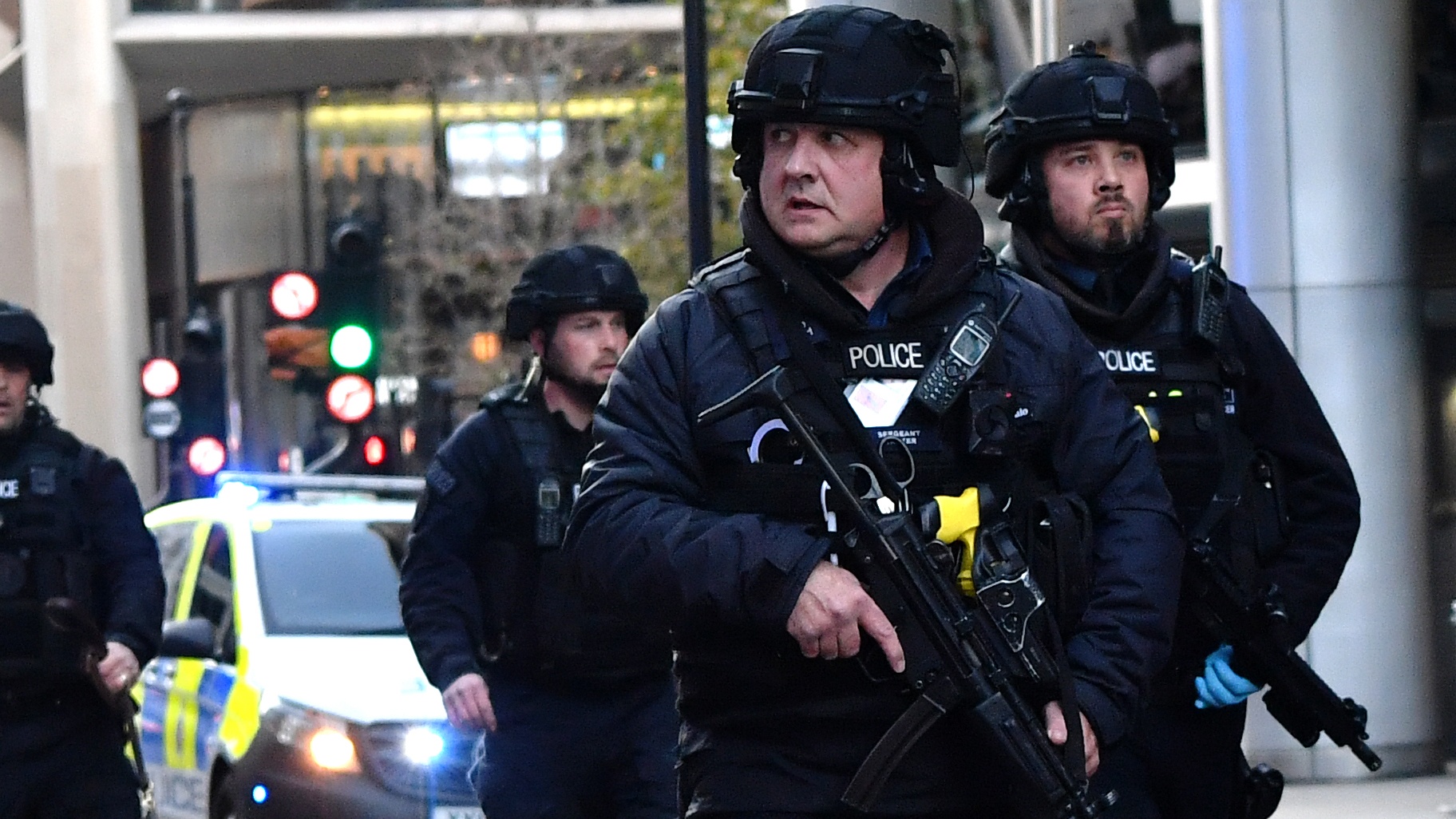Polygraphs for terrorists: do lie detectors work?
Tories planning to introduce tests in bid to stop terrorists from gaming deradicalisation programmes

A free daily email with the biggest news stories of the day – and the best features from TheWeek.com
You are now subscribed
Your newsletter sign-up was successful
Terrorists may be forced to sit polygraph tests to prove that they are not planning to commit further attacks, under new government plans.
The proposals for polygraph testing are part of a raft of reforms that Boris Johnson hopes to introduce in the wake of November’s London Bridge attack.
The prime minister is also pushing for tougher sentences that would see individuals convicted of plotting terrorist attacks or running a terror organisation facing a minimum of 14 years in prison.
The Week
Escape your echo chamber. Get the facts behind the news, plus analysis from multiple perspectives.

Sign up for The Week's Free Newsletters
From our morning news briefing to a weekly Good News Newsletter, get the best of The Week delivered directly to your inbox.
From our morning news briefing to a weekly Good News Newsletter, get the best of The Week delivered directly to your inbox.
Commenting on the polygraph tests plan on Sky News’s Kay Burley @ Breakfast show, Justice Secretary Robert Buckland said that lie detectors could help to identify terror offenders who are “in effect sleepers for many years”.
How would the tests be used?
The polygraph tests would be used primarily to determine whether individuals convicted of terrorist offences are attempting to trick deradicalisation officers in order to get early release from jail.
London Bridge attacker Usman Khan, 28, had been released on licence in December 2018 after completing a deradicalisation programme in jail following a conviction for plotting to bomb the London Stock Exchange.
A free daily email with the biggest news stories of the day – and the best features from TheWeek.com
Justice Secretary Buckland told Sky presenter Burley that “we get a lot of people who are superficially very compliant with the regime”, but then “back come the hatreds and the prejudices and we see atrocities like the one we did” at London Bridge.
The lie testing devices are already being used to monitor registered sex offenders, under measures introduced in 2014 by the Conservative-Liberal Democrat coalition government.
The gov.uk website says that sex offenders are required to take the test every six months, and “if found to have been covering up inappropriate behaviour”, are likely to be recalled to prison.
How do lie detectors work?
According to science website howstuffworks.com, polygraph tests work by monitoring a person’s breathing rate, pulse, blood pressure and perspiration.
The four “signifiers” are measured using between four and six sensors attached to the person, with the results recorded on a moving piece of graph paper. The subject is asked four simple questions, to establish their norms, before questioning begins.
Once the questioning has been completed, a polygraph examiner looks at the graphs to check whether the vital signs changed significantly at any point.
“In general, a significant change (such as a faster heart rate, higher blood pressure, increased perspiration) indicates that the person is lying,” says the site.
So how accurate are they?
Howstuffworks says that if “a well-trained examiner uses a polygraph, he or she can detect lying with high accuracy”.
However, given that the examiner’s judgement is subjective, it is possible to fool the test.
According to The Washington Times, a former Oklahoma City police officer was sentenced in 2015 to two years in jail for teaching clients how to “conceal misconduct and other disqualifying information” when taking polygraph tests.
Indeed, the accuracy levels of the tests have been found to be as low as 60%, reports Sky News.
When challenged over those statistics, Buckland said: I’m not pretending on their own, polygraphs, lie detectors, are the be-all-and-end-all, which is why what we are also doing is doubling the number of specialised counterterrorism probation officers... improving training, getting more psychologists in there, specialist imams as well will be working with these people.”
All the same, the widespread use of lie detector tests in both Britain and other countries has triggered concern among experts including Leonard Saxe, a psychologist at Massachusetts-based Brandeis University who has conducted research into polygraphs.
Saxe told Vox: “There’s no unique physiological sign of deception. And there’s no evidence whatsoever that the things the polygraph measures - heart rate, blood pressure, sweating, and breathing - are linked to whether you’re telling the truth or not.”
Research conducted by Saxe and other experts for a 1983 report for the US Congress resulted in a ban on “private employers giving polygraph tests to employees”.
The veto was followed by a 1998 Supreme Court ban on the use of polygraph evidence in some federal courts, on the grounds that “there is simply no consensus that polygraph evidence is reliable”.
Many scientists insist that lie detectors are still a useful tool, however.
Speaking to the BBC, Don Grubin, a Newcastle University professor of forensic psychiatry who has trained polygraph examiners in the UK, said: “If the examiner is well-trained, if the test is properly carried out, and if there’s proper quality controls, the accuracy is estimated between 80% to 90%.”
But Grubin admits that, with the right training, “there’s no question that you can beat a polygraph test”.